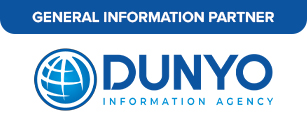News
How will the registration and certification of medicines change in Uzbekistan?
Starting from October 1, in Uzbekistan, medicines registered by foreign regulators included in the WHO list may be recognized without full re-testing. From 2026, medicines will be registered according to risk levels, and from 2027 — certified according to international standards.
On August 19, President of Uzbekistan Shavkat Mirziyoyev signed a decree on additional measures to regulate the circulation of medicines and medical devices.
One of the key provisions of the decree is to bring the registration procedure of medicines and medical devices in line with international requirements and quality standards.
According to the document, from October 1, 2025, medicines registered by foreign organizations are subject to state registration in Uzbekistan through recognition. This refers to:
regulatory authorities included in the WHO Listed Authorities before the decree entered into force;
authorities with Maturity Level 4 under the WHO Global Benchmarking Tool.
As a result, if a medicine is already registered in one of the recognized international organizations, it can be recognized in Uzbekistan without full re-testing, but only through recognition of the data verified by the foreign regulator.
From January 1, 2026, medical devices and equipment will be subject to mandatory state registration as medical products. They will be classified into four levels of safety, taking into account the potential risks to human life.
Registration will be based on differentiated requirements: the higher the risks, the stricter the conditions for market access. For high-risk products, mandatory verification based on clinical trial results is required. The only exception will be low-risk devices, the list of which will be approved by the Ministry of Health.
Hilola Ganieva, Chief Specialist of the Health Projects Center, noted in an interview with Uzbekistan 24 TV channel that while previously all medical devices were registered under a single requirement, now they will be classified by safety classes. “These are international requirements, and we are implementing them in our Republic of Uzbekistan,” she said.
Also, starting from January 1, 2026, for state registration of medicines and renewal of the registration certificate, domestic and foreign manufacturers must obtain the national certificate “Good Manufacturing Practice — GMP”. The only exception applies to medicines that have passed WHO prequalification and are subject to recognition-based registration.
As a result, manufacturers will be issued a registration certificate valid for five years. Certificates previously issued indefinitely to domestic manufacturers will now be limited to five years from the date this decree enters into force.
Hilola Ganieva also announced that a new bioanalytical laboratory for studying the bioequivalence of medicines and drugs will be established in Uzbekistan.
“Until today, the effectiveness of medicines in Uzbekistan was mostly studied at the level of clinical trials. But studying international standards and directives, and considering that the pharmaceutical industry in Uzbekistan is one of the strategically important and rapidly developing sectors, this decree provides for the creation of a new bioanalytical laboratory for the study of bioequivalence of medicines,” she said.
According to Ganieva, the appearance of such a laboratory will make it possible to confirm the quality and effectiveness of generic medicines in comparison with reference drugs.
“The whole world ensures that generic medicines correspond to the original medicine. Accordingly, with this presidential decree, we are taking the first step toward new studies confirming the quality, firstly of our domestic medicines, and secondly, of imported foreign medicines,” she explained.
She also added that the introduction of contract manufacturing and technology transfer will create conditions for Uzbekistan to become a pharmaceutical hub of Central Asia: “Many foreign pharmaceutical companies will be able to transfer part of their drug production technologies to our domestic pharmaceutical sites. After that, they will export to a number of neighboring countries.”
Certification
From 2027, new rules for the certification of medicines and medical devices will come into force in Uzbekistan. According to the document, to obtain a certificate of conformity, the following will be mandatory:
from January 1, 2027 — the national “Good Manufacturing Practice — GMP” certificate for all types of medicines by manufacturers;
from July 1, 2027 — the certificate of conformity of medical devices to the national ISO:13485 standard.
At the same time, the decree provides exceptions. GMP and ISO:13485 certificates will not be required:
for orphan (rare) medicines and medical devices for diagnosis and treatment of rare diseases, as well as for means against particularly dangerous infections and epidemics;
for devices not subject to mandatory conformity certificate;
for medicines and devices registered in a simplified recognition procedure;
for medicines and devices prequalified by the WHO.
The document also cancels the licensing requirement for retail trade of medical devices — instead, entrepreneurs will only need to notify the authorized body.
Source








